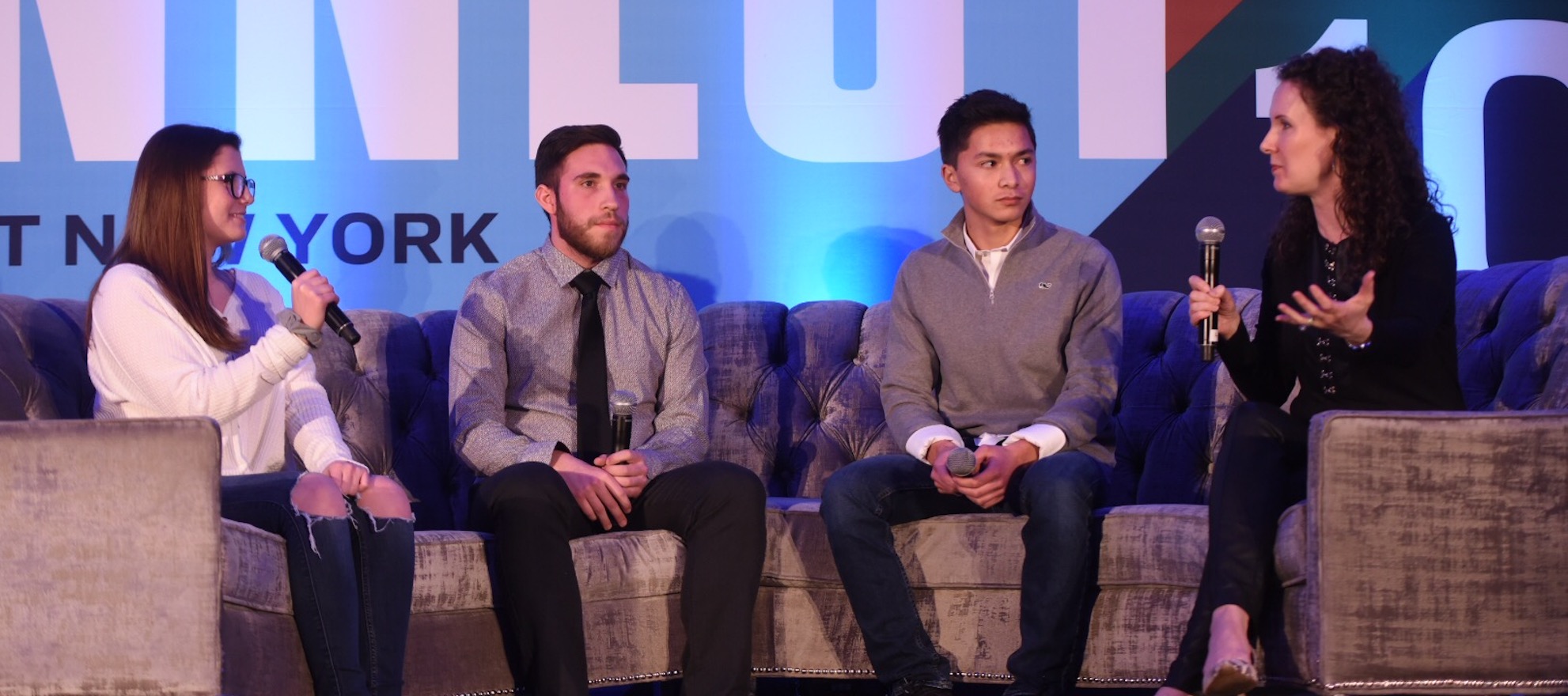
At the Inman Connect New York 2019 real estate conference on Tuesday, a panel consisting of three teen and 20-something members of “Generation Z” stressed that although they believe technology is important, it’s not the only integral aspect of buying a home.
Led by Better Homes and Gardens Real Estate chief marketing officer Jennifer Marchetti, the talk highlighted the trust, communication, and human touch the next generation is looking for when thinking about buying real estate.
There’s a common refrain that Millennials are the digital native generation, but it’s actually Generation Z — defined roughly as those born after 1996 — that has been brought up in a world of mobile devices and persistent internet connectivity. And their shopping habits are a big indicator of this.
“When I go to buy anything I go online first, not to buy it, but to research it,” 22-year-old Michael Gosden, who plans to buy a home in the future, said. “If I can get to know the product better in person, I’d prefer that. I’d say it’s 70 percent out and about, 30 percent online shopping.
In short, Gen Z prefers personal experience and word-of-mouth as opposed to a Google search, at least according to the Inman panelists.
“I normally like to shop in person, at the store, for clothing,” 15-year-old Liz Pietrucha, a self proclaimed future homeowner, says. When it comes to shopping habits, the teen says that “Some of the experts I’m talking to have a bias, and I’d like them to be more honest.”
3 tips for thriving in a changing market
As the market shifts, your strategy needs to adjust READ MORE
Similarly, 16-year-old Zach Moser explains that when shopping for an item in person, “I’m looking for an experience and to give me the nuances of it, because without that we can buy it on Amazon.”
When it comes to buying a home in the distant future, all three Gen Z-ers would definitely consider the community, commute to work and school for future kids.
“For example, I would like to live in the city,” Pietrucha says. “So I would go on Zillow or something to start looking at the surrounding neighborhoods.”
“Yes, I have used Zillow rent, but I don’t want to buy online necessarily,” Gosden says. “I’d like to do the research and then have an agent guide me in a way a screen couldn’t.”
Aside from the monetary trust you put in the agent, using them to help you find things like schooling and work, they need to be plugged in on that.
Perhaps what does set the next generation apart when it comes to home buying, they’re looking for a unique experience.
“I want to find a home that’s unique to me,” Moser said.
There’s still likely a few years before many members of the generation look to purchase property, and according to a recent realtor.com analysis, an 18-year-old today will need to save $304 a month for the next 12 years in order to afford a 10 percent down payment on a $386,310 home in 2031 — which realtor.com projects will be the national median price.
For Generation Z, even a starter home deserves elbow grease to help it and grow its value over time.
“Communication, communication, communication,” Gosden stressed. “We can text, Facetime, email. Just learn to communicate with us appropriately.”
Generation Z trusts agents more than the internet for home buying curated from Inman
Comments
Post a Comment